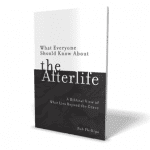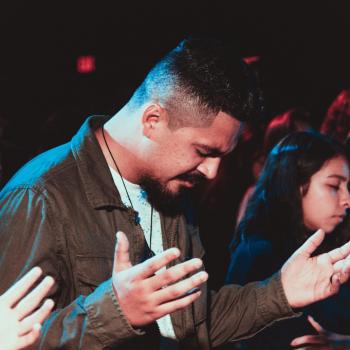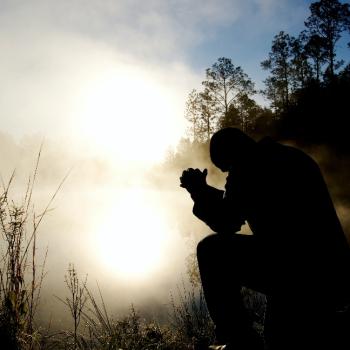Ecclesiastes 11:1-12:8 What Life Is All About Part 1
Is life worth living? This is the question that the writer of Ecclesiastes has been asking and will continue to ask throughout the rest of the book. In these final two chapters, Solomon summarizes the answer to this question. After looking through the lens of the world as we know it and trying to discover how to live life, Solomon concludes that life is meaningless.
Solomon employs many metaphors to describe the vanity of life. Chasing the breeze. A puff of smoke. Dust in the wind. The laughter of fools or a forgotten memory. Life without God, as Solomon has demonstrated in many ways, is utterly meaningless.
Now, toward the end, Solomon resolves all the questions he has raised, and he gives us his ultimate conclusion.1
Life is not about the five senses. Life is more than just what we see. It is much more. Here, Solomon will summarize his conclusion by sharing four different conclusions. Life is an adventure, a gift, a school, and a stewardship. We will look at two of these pictures in this sermon and then conclude with the final two pictures in the last sermon of the series on Ecclesiastes.
1. Life is an adventure: live by faith (Ecclesiastes 11:1-6)
The writer of Ecclesiastes shares two illustrations to describes what it means to live by faith.
The merchant (Ecclesiastes 11:1-2)
“Send your bread on the surface of the water, for after many days you may find it. Give a portion to seven or even to eight, for you don’t know what disaster may happen on earth.” (Ecclesiastes 11:1–2, CSB)
Solomon himself was involved in various kinds of trade, so it was natural for him to use this illustration.
“besides what came from merchants, traders’ merchandise, and all the Arabian kings and governors of the land.” (1 Kings 10:15, CSB)
“for the king had ships of Tarshish at sea with Hiram’s fleet, and once every three years the ships of Tarshish would arrive bearing gold, silver, ivory, apes, and peacocks.” (1 Kings 10:22, CSB)
It would be months before the ships would return with their precious cargo; but when they did, the merchant’s faith and patience would be rewarded. Ecclesiastes 11:2 suggests that he spread out his wealth and not put everything into one venture.2
This is also practical financial advice. If you want to live life as an adventure, you need to store money for a rainy day. So like they say, “don’t put your eggs all in one basket.” You learn to diversify your income.
Yet the verse says to give a portion, to divide it among seven or eight. So this is not just about diversifying income. It also also about stewardship. It is about how you give money away as well.
I like how the New Living Translation translates this verse:
“Send your grain across the seas, and in time, profits will flow back to you.” (Ecclesiastes 11:1, NLT)
Today we would say, “Don’t put your extra bread in the freezer—give it away, instead.” Jesus underscored this wisdom when He said, “Freely ye have received; freely give”.3
“Heal the sick, raise the dead, cleanse those with leprosy, drive out demons. Freely you received, freely give.” (Matthew 10:8, CSB)
To “spread the bread along the water” means to invest your money in other people. It is an act of faith. The instinct is to hog all of the money, or use the money on just ourselves. Yet, the point of this passage is that one has to have faith with the money you give away. When you receive an amount of money, trust God with it. Give it to God and His work. See how the investment returns back to you.
It does not mean that if you empty your bank account and give it to the church that God is going to give you a windfall. But it does mean that when you give to God in faith, when you invest in His Kingdom, there will be returns to that investment in your life.
So the first example is the merchant. The second example of living by faith is the farmer.
The farmer (Ecclesiastes 11:3-6)
FOUR WAYS THE FARMER LIVES BY FAITH4
1. The farmer looks out for dangers on the horizon.
“If the clouds are full, they will pour out rain on the earth; whether a tree falls to the south or the north, the place where the tree falls, there it will lie.” (Ecclesiastes 11:3, CSB)
The farmer looks up and around to see if there is danger on the horizon.
2. The farmer is not so cautious that he does nothing.
“One who watches the wind will not sow, and the one who looks at the clouds will not reap.” (Ecclesiastes 11:4, CSB)
But he doesn’t spend his time daydreaming. He also doesn’t spend his time with his head in the sand.
3. The farmer realizes that all things are ultimately in God’s hands.
“Just as you don’t know the path of the wind, or how bones develop in the womb of a pregnant woman, so also you don’t know the work of God who makes everything.” (Ecclesiastes 11:5, CSB)
The farmer realizes that he can’t know everything that God can do, so he trusts God by faith.
4. The farmer proceeds with his work with an eye toward all possible contingencies (11:6).
“In the morning sow your seed, and at evening do not let your hand rest, because you don’t know which will succeed, whether one or the other, or if both of them will be equally good.” (Ecclesiastes 11:6, CSB)
While the farmer is trusting God by faith, he is prepared to act in the situation changes. The first way to see life is that it is an adventure. The second way to view life is that it is a gift.
2. Life is a gift: enjoy it (Ecclesiastes 11:7-12:8)
Rejoice (Ecclesiastes 11:7-9)
“Light is sweet, and it is pleasing for the eyes to see the sun. Indeed, if someone lives many years, let him rejoice in them all, and let him remember the days of darkness, since they will be many. All that comes is futile. Rejoice, young person, while you are young, and let your heart be glad in the days of your youth. And walk in the ways of your heart and in the desire of your eyes; but know that for all of these things God will bring you to judgment.” (Ecclesiastes 11:7–9, CSB)
Spurgeon, the great nineteenth-century preacher, once said, “It is not how much we have, but how much we enjoy that makes happiness.”5
Remove (Ecclesiastes 11:10)
“Remove sorrow from your heart, and put away pain from your flesh, because youth and the prime of life are fleeting.” (Ecclesiastes 11:10, CSB)
Let go of the pain and remove sadness. You don’t need to be filled with sadness in your life.
Remember (Ecclesiastes 12:1-8)
Between Ecclesiastes 12:3-5, we see thirteen parts of a picture that are used to describe the process of life and aging. The picture is of a house. Here, we see different parts of the house that begin to fall apart. Warren Wiersbe lists thirteen different parts of the house that fall apart.6
1. keepers of the house—Your arms and hands tremble (Ecclesiastes 12:3)
2. strong men—Your legs, knees, and shoulders weaken and you walk bent over (Ecclesiastes 12:3)
3. grinders—You start to lose your teeth (Ecclesiastes 12:3)
4. windows—Your vision begins to deteriorate (Ecclesiastes 12:3)
5. doors—Either your hearing starts to fail, or you close your mouth because you’ve lost your teeth (Ecclesiastes 12:4)
6. grinding—You can’t chew your food, or your ears can’t pick up the sounds outdoors (Ecclesiastes 12:4)
7. rise up—You wake up with the birds early each morning, and wish you could sleep longer. (Ecclesiastes 12:4)
8. music—Your voice starts to quaver and weaken (Ecclesiastes 12:4)
9. afraid—You are terrified of heights and afraid of falling while you walk down the street (Ecclesiastes 12:5)
10. almond tree—If you have any hair left, it turns white, like almond blossoms (Ecclesiastes 12:5)
11. grasshopper—You just drag yourself along, like a grasshopper at the close of the summer season. (Ecclesiastes 12:5)
12. desire—You lose your appetite, or perhaps your sexual desire (Ecclesiastes 12:5)
13. long home—You go to your eternal [long] home and people mourn your death (Ecclesiastes 12:5)
What will be your last words? Here are some from other people:7
“Nothing matters. Nothing matters” (Louis B. Mayer, film producer; died October 29, 1957).
“It is very beautiful over there” (Thomas Edison, inventor; died October 18, 1931; he may have been referring to the view outside of his window).
“I’m bored with it all” (Winston Churchill, statesman; died January 24, 1965; after saying this, he slipped into a coma and died nine days later).
“Am I dying, or is this my birthday?” (Lady Nancy Astor; died 1964; after waking briefly during her last illness and finding all her family around her).
“Why, yes, a bulletproof vest” (Domonic Willard, a foot soldier during the Prohibition, just before his death by firing squad, in response to being asked if he had any last requests).
“Don’t let me die; I have got so much to do” (Huey Long, “The Kingfish,” governor of and senator from Louisiana; died 1935).
“My work is done. Why wait?” (George Eastman, inventor; died 1932; from his suicide note).
“Jesus, I love you. Jesus, I love you” (Mother Teresa; died September 5, 1997).
1 David Jeremiah, Searching for Heaven on Earth: How to Find What Really Matters in Life (Nashville, TN: Thomas Nelson Publishers, 2004), 280.
2 Warren W. Wiersbe, Be Satisfied, “Be” Commentary Series (Wheaton, IL: Victor Books, 1996), 127.
The farmer (Ecclesiastes 11:3-6)
3 Jon Courson, Jon Courson’s Application Commentary: Volume Two: Psalms-Malachi (Nashville, TN: Thomas Nelson, 2006), 295.
4 David S. Dockery et al., Holman Bible Handbook (Nashville, TN: Holman Bible Publishers, 1992), 366.
5 Edward M. Curtis, Ecclesiastes and Song of Songs, ed. Mark L. Strauss and John H. Walton, Teach the Text Commentary Series (Grand Rapids, MI: Baker Books, 2013), 103.
6 Warren W. Wiersbe, Be Satisfied, “Be” Commentary Series (Wheaton, IL: Victor Books, 1996), 132.
7 Craig Brian Larson and Phyllis Ten Elshof, 1001 Illustrations That Connect (Grand Rapids, MI: Zondervan Publishing House, 2008), 237.














